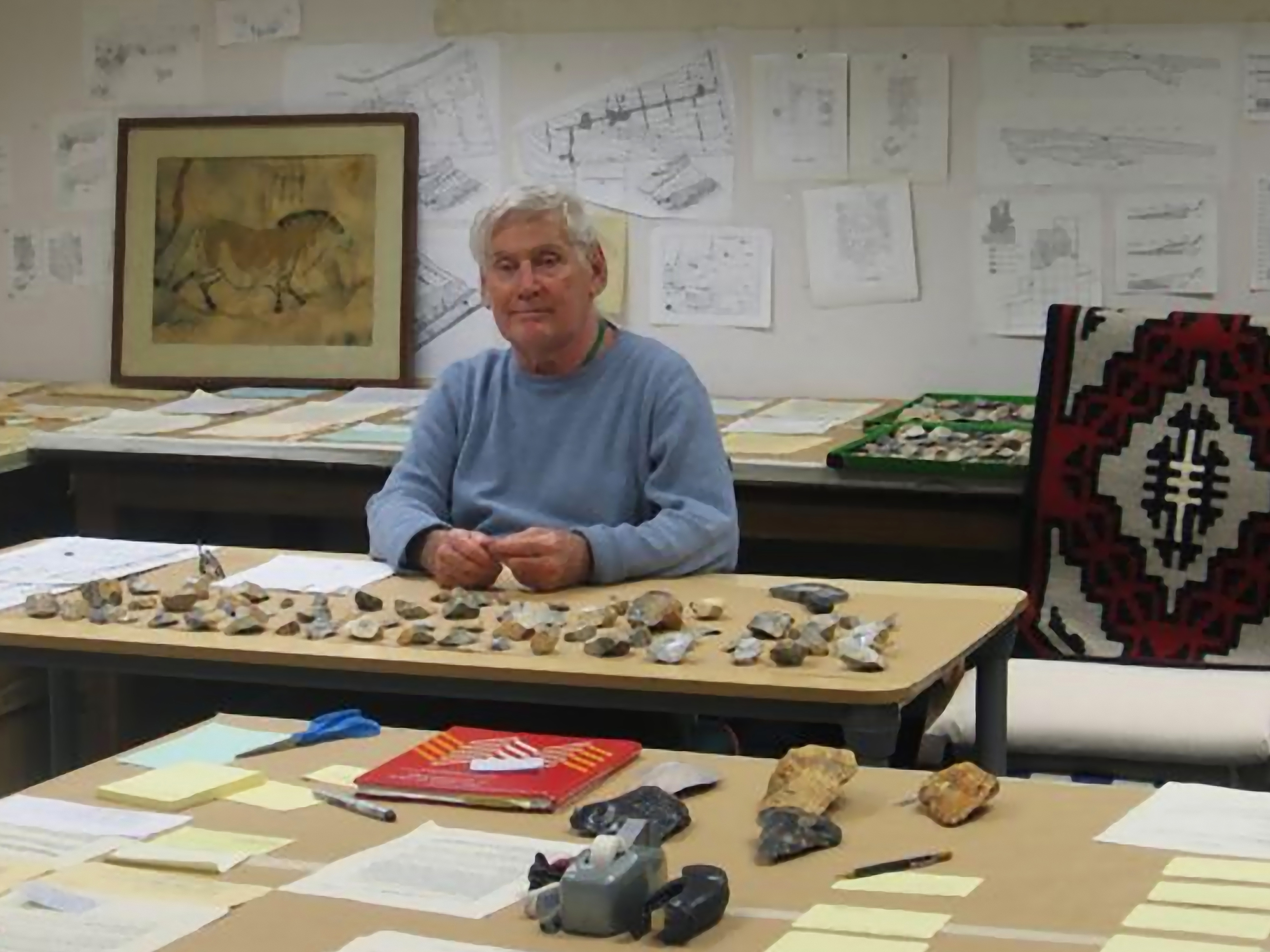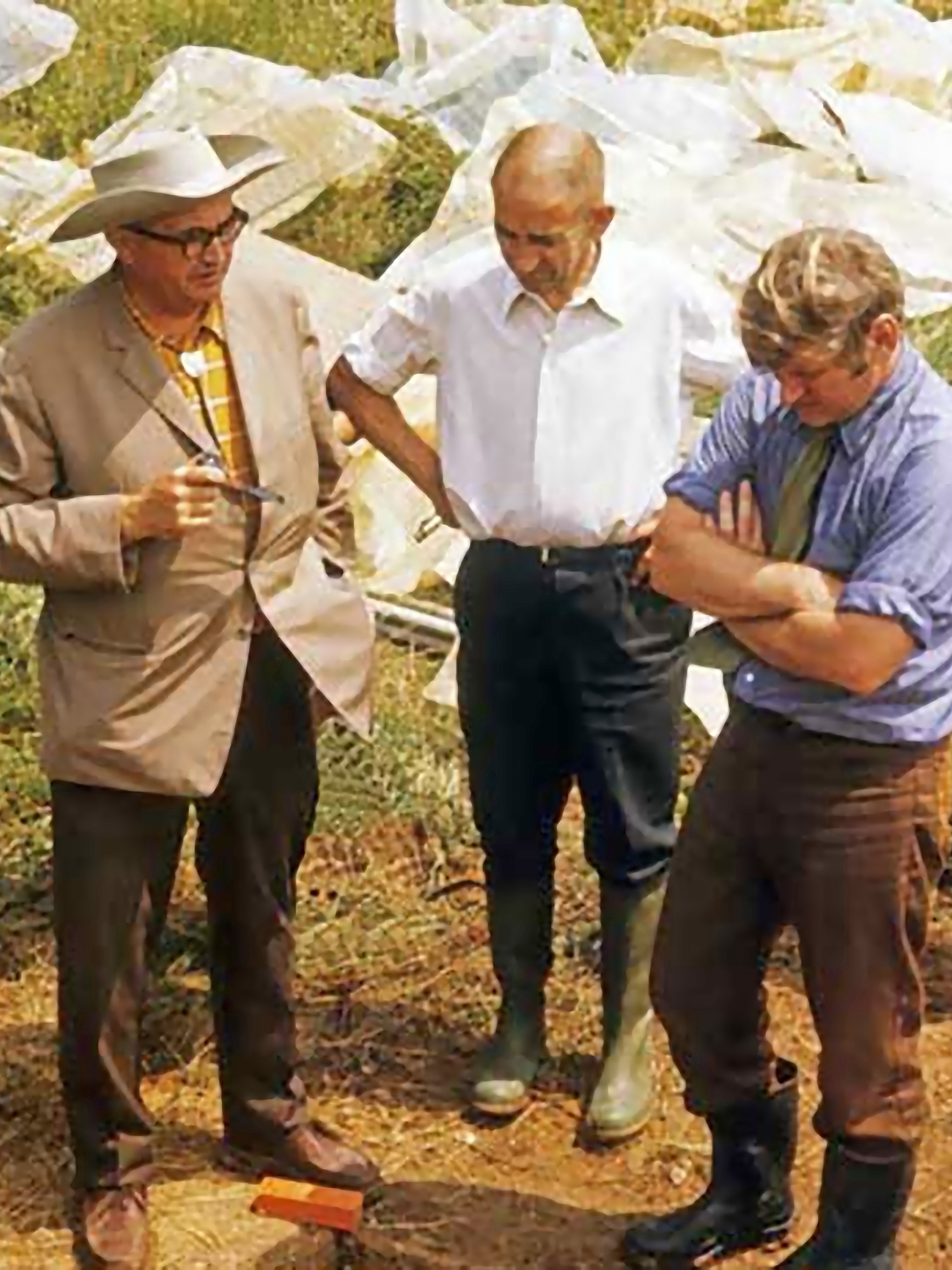Noteworthy
VANESSA MUROS discusses conservation contributions to archaeology in inaugural panel from the Getty Research Institute
Vanessa Muros, director of the Experimental and Archaeological Sciences Laboratory (EASL), will be a panelist in the new Scholars Program series, Conversations on Context, from the Getty Research Institute.
These interdisciplinary panels will feature experts discussing their work in relation to an annual scholar theme. In light of this year's theme, The Fragment, this panel will focus on the manifold ways that fragmentary objects are analyzed, interpreted, and preserved in efforts to reconstruct our understanding of history.
Monday, December 7, 2020
10:30am – 12:00pm PT
Zoom Webinar
To join the webinar, please click the following link:
https://getty.zoom.us/j/95736571369
Passcode: 253062
Speakers Aaron de Souza (Institute for Oriental and European Archaeology at the Austrian Academy of Sciences, Vienna), Anna Prentiss (University of Montana), Marian Feldman (Johns Hopkins University) and Vanessa Muros (Cotsen Institute of Archaeology, UCLA) will each give a short presentation of their work, followed by a moderated discussion with Ken Lapatin (Antiquities Curator, Getty Villa).
LOTHAR VON FALKENHAUSEN in conversation on Chinese archaeology, moderated by LI MIN
Celebrating the publication of Lothar von Falkenhausen’s collected interviews, a Zoom conversation with the title “What Can Chinese Archaeology Contribute to the World?” was held December 3, 2020, from 2–4 pm. (PST). The discussion was between professor Haun Saussy of the University of Chicago and von Falkenhausen, who is professor of both Chinese archaeology and art history and a core faculty member of the Cotsen Institute. The conversation was moderated by Li Min, an associate professor of East Asian archaeology with a joint appointment in the departments of Anthropology and Asian Languages and Cultures and also a core faculty member of the Cotsen Institute. The volume “Archaeology, Scholarship, and Life: Collected Interviews with Lothar von Falkenhausen” was edited by Meng Fanzhi and published earlier this year by Shanxi Meishu Chubanshe in Taiwan. The event was sponsored by the Center for Chinese Studies at UCLA.
AMR SHAHAT podcast on “Archaeology and Today’s Diet” released by the Semel Healthy Campus Initiative Center
Amr Shahat, a graduate student in archaeology in the Cotsen Institute and visiting researcher at UC Berkeley, has contributed a podcast to the Semel Healthy Campus Initiative Center at UCLA for their series around new perspectives on health and well-being called UCLA LiveWell. In the podcast, “Past to Present: Archaeology and Today’s Diet,” Shahat discusses how scientific analysis of food remnants can tell stories of how ancient Egyptians lived. He explains how racism and gender inequality intersect with archaeology and how the study of what is left in the stomach of mummies can tell us how much fiber we should eat. Shahat previously wrote about his research in the 2019 issue of Backdirt, the annual review of the Cotsen Institute. Additional information on his research can be accessed through ResearchGate.
Getty publication quotes ELLEN PEARLSTEIN on underrepresented conservation students
Ellen Pearlstein, professor of information studies and core faculty member of the Cotsen Institute, was quoted by “The Iris, Behind the Scenes at the Getty” in an article about the Getty Foundation Post-Baccalaureate Internships which benefit underrepresented conservation students. One of the new interns is a member of the Mellon Directed Opportunity for Diversity in Conservation program of which Pearlstein is the principal investigator. Pearlstein teaches in the UCLA/Getty Program in the Conservation of Cultural Heritage and was a major contributor to the creation of the PhD program of the Interdepartmental Program in Conservation of Archaeological and Ethnographic Materials, both part of the Cotsen Institute.
JASON DE LEÓN migration studies featured in UCLA Newsroom article
Check out the piece here.
SONIA ZARRILLO co-authors chapter for Dumbarton Oaks publication
Sonia Zarrillo, postdoctoral scholar at the Cotsen Institute, is co-author with Michael Blake of a chapter titled “Tracing the Movement of Ancient Cacao in the Americas: New Approaches” for the upcoming book “Waves of Influence: Revisiting Coastal Connections between Pre-Columbia Northwest South America and Mesoamerica,” to be published by Dumbarton Oaks, Washington, D.C. The chapter grew out of an invited presentation held in October, 2019 during the Dumbarton Oaks Pre-Columbian Symposium and the Joint American Anthropological Association/Canadian Anthropological Society Annual Meeting. These annual meetings provide a forum for the presentation of advanced research and the exchange of ideas on the art and archaeology of the ancient Americas. Zarrillo is the director of the Ancient Agriculture and Paleoethnobotany Laboratory at the Cotsen Institute.
WILLEKE WENDRICH presents a lecture at Harvard on ancient apprenticeship
On Wednesday, September 16, Willeke Wendrich, the director of the Cotsen Institute, presented a remote lecture for the Harvard Museums of Science and Culture Program. She discussed the transfer of cultural knowledge in ancient Egyptian society, the social history of learning in ancient Egypt, and what these can teach us in the present.
AMR SHAHAT quoted in Sapiens magazine
AMR SHAHAT, PhD candidate at the Cotsen Institute, has been quoted in the article “Pandemic Bakers Bring the Past to Life” published in the anthropology magazine Sapiens. The magazine is an independent publication of the Wenner Gren Foundation for Anthropological Research in partnership with the University of Chicago Press.
BARBARA GREENSTEIN honors Jim Sackett with gift to the Cotsen Institute
 Barbara Greenstein (Anthropology 1972, Law 1979), has made her first ever gift to the Cotsen Institute in honor of James Sackett, who passed away in December 2019. Sackett was instrumental in founding the Institute of Archaeology at UCLA in 1973 and in its renaming as the Cotsen Institute of Archaeology in 2001. In making the gift, Greenstein reflected on her experience learning and working with Sackett.
Barbara Greenstein (Anthropology 1972, Law 1979), has made her first ever gift to the Cotsen Institute in honor of James Sackett, who passed away in December 2019. Sackett was instrumental in founding the Institute of Archaeology at UCLA in 1973 and in its renaming as the Cotsen Institute of Archaeology in 2001. In making the gift, Greenstein reflected on her experience learning and working with Sackett.
“In the early 1970s, with great good fortune, I stumbled into Jim Sackett’s undergraduate anthropology courses in human evolution and Paleolithic archaeology. Sackett taught lively classes where the fossil record of hominid evolution—manifested as Australopithecus spp., Homo erectus, Homo neanderthalensis and Homo sapiens—was brought back to life in the classroom. He introduced us to Carl Linnaeus, Gregor Mendel, Alfred Wallace, Charles Darwin, and Pierre Teilhard de Chardin, among others. We pondered what set humans on a divergent evolutionary course compared to other animals, be it our descending from trees, walking upright, hunting and gathering, or our large brains and our capacity for violence. In his hands our study was never dry, and I credit him for my abiding interest in primates, archaeology, and the history of science. Sackett also informed his students of his opinion that Paleontology was a third-rate science, fraught with religious opposition, a history of scams like the Piltdown fraud, and internecine warfare between various academics and schools of thought. He conveyed all of this with a sense of humor, a sense of excitement, and the certainty that whichever fossil a paleontologist uncovered was inevitably believed by its discoverer to be the direct ancestor of modern humans, while everyone else’s finds were offshoots that led only to an extinct branch on the human evolutionary tree.
 “In the summer of 1973 I joined Sackett’s excavation at Solvieux, an open-air Paleolithic site in southwest France. There we learned that Sackett was the only American archaeologist that the French allowed to direct a Paleolithic excavation. As we trudged back from daily fieldwork covered in sweat and grime, he would smile broadly at our dirty jeans and streaked faces, our hair tied up in dusty bandanas, and say fondly, ‘you all look really great, you look like archaeologists.’ My memories of that summer also include internecine warfare between various graduate students vying for his attention (a cautionary tale, but proving his point), as well as plenty of vin ordinaire, melon au jambon, and marron glacé, along with lively discussions of the differences in accent between Paris and the Dordogne.
“In the summer of 1973 I joined Sackett’s excavation at Solvieux, an open-air Paleolithic site in southwest France. There we learned that Sackett was the only American archaeologist that the French allowed to direct a Paleolithic excavation. As we trudged back from daily fieldwork covered in sweat and grime, he would smile broadly at our dirty jeans and streaked faces, our hair tied up in dusty bandanas, and say fondly, ‘you all look really great, you look like archaeologists.’ My memories of that summer also include internecine warfare between various graduate students vying for his attention (a cautionary tale, but proving his point), as well as plenty of vin ordinaire, melon au jambon, and marron glacé, along with lively discussions of the differences in accent between Paris and the Dordogne.
“I last saw Jim Sacket in 2012 or 2013 at an Open House of the Cotsen Institute. I walked into his laboratory to say hello, and we chatted about that summer and the time since. He would have loved the Chauvet Cave program. I hope that he had an opportunity to see the material. Perhaps his spirit is now flowing through those caves, looking on in wonder, as we did with the film The Final Passage.”
- ‹ previous
- 8 of 11
- next ›


